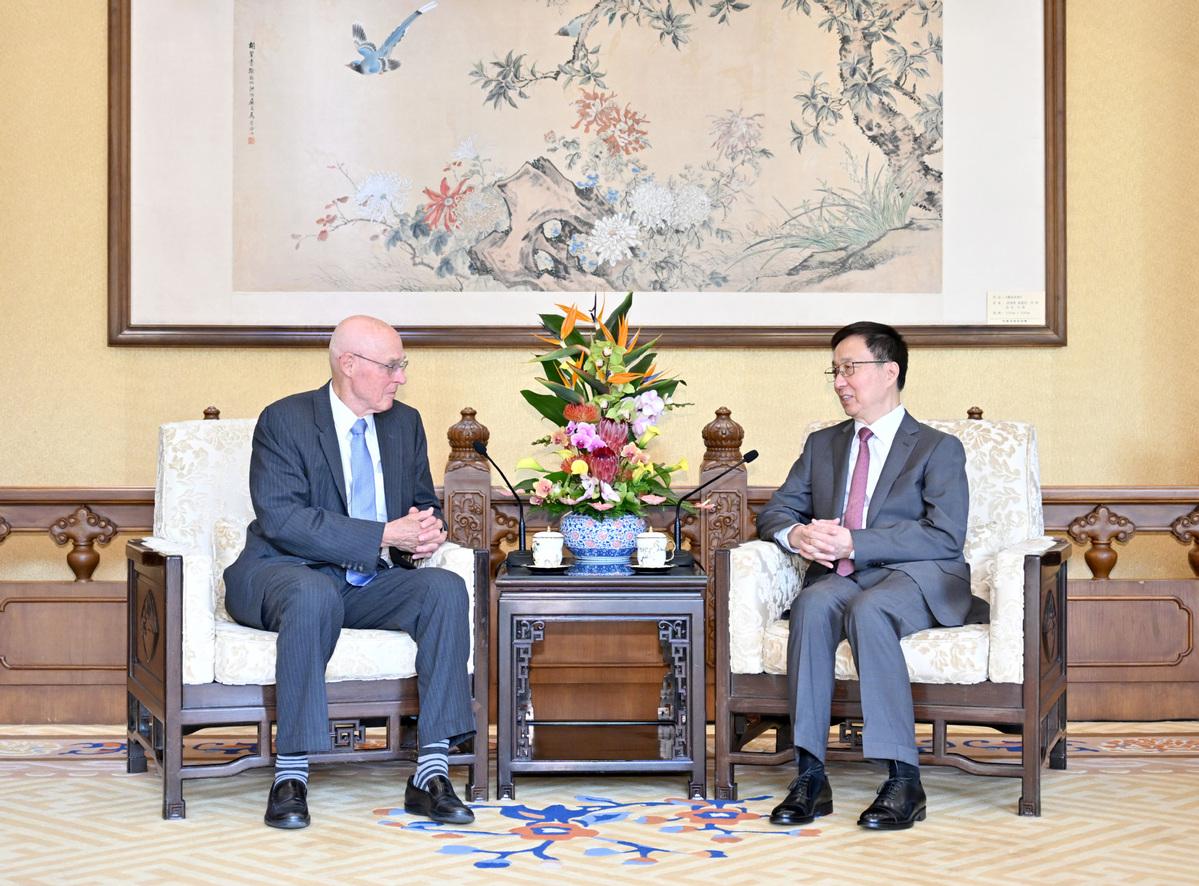
Vice-President Han Zheng meets with former US treasury secretary Henry Paulson in Beijing, Sept 26, 2023. [Photo/Xinhua]
This is an editorial from China Daily.
The high-level reception former US treasury secretary Henry Paulson received during his visit to Beijing on Monday and Tuesday should make Beijing's desire to mend ties with Washington clear to all. Paulson met separately with the Chinese vice-president, foreign minister and central bank president.
Vice-President Han Zheng met with US Secretary of State Antony Blinken in New York on the sidelines of the UN General Assembly on Sept 18. Foreign Minister Wang Yi had a meeting with US National Security Advisor Jake Sullivan in Malta on Sept 16 and 17. Both Han and Wang were thus well informed of the latest concerns of the US side regarding Sino-US relations. That made their meetings with Paulson to-the-point regarding the pain points for ties.
In their meetings, Beijing obviously toned down its discourse on the United States' role in the straining of relations. That's not only because of Paulson's nonofficial identity, but more importantly because the hard-earned positive momentum of Sino-US ties, mainly in the economic and financial sectors, promises further improvement in their relations if it is nurtured by both sides.
Thus while the Chinese side still put the onus on Washington to ease ties, urging it to expand the "list of positives" and "reduce the list of negatives", it also sent a warm welcome message to US companies.
It can be seen from this that the two sides have reached a tacit understanding to seek cooperation in fields where they do not have a direct conflict of interest, such as climate change, and to strengthen their communication to form new rules of the game for their economy and trade competition, since they cannot decouple with each other. At the same time, they will continue to lock horns over security issues, where the space for either side to compromise is limited.
Stabilizing the Sino-US economic relationship, as both Han and Wang stressed to Paulson, serves the common interests of the two sides, and thus communication in the economic field should be strengthened. And climate change is one of the few fields where they can maintain exchanges to enable their relations to weather the storms of their disputes. Yet, a flare-up of a military conflict would render all efforts in these aspects in vain.
So Washington should dial back its provocations and echo this positive message from Beijing. For instance, abolishing the US' punitive tariffs targeting China that it launched in July 2018, which it can do in its ongoing five-year review of the tariffs, and removing the hundreds of Chinese entities on its Entity List.
It is regrettable, therefore, that the US added another 11 Chinese entities to its export control list on Monday citing "national security" concerns.
The Joe Biden administration should realize that neither the tariff war started by its predecessor nor the Entity List that it continues to lengthen represent the right way to manage relations between the two countries. Both of these are negative assets for Washington, rather than strategic ones. Now is the time for the Biden administration to remove these irrational burdens on Sino-US ties.

 中文
中文



